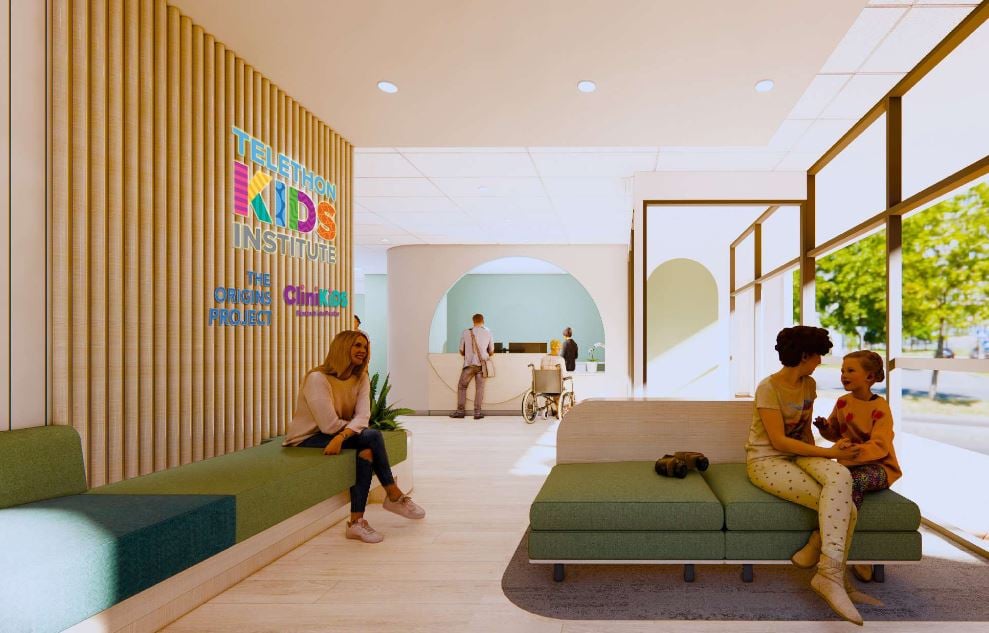Search

News & Events
Joondalup clinic newsCliniKids’ new clinic in the Joondalup area is coming along nicely and is on track to open around the middle of the year.
You're now removed from all The Kids Research Institute Australia marketing email lists

News & Events
Embrace Co-Director attends ABC Big Day of BooksEmbrace Co-Director Professor Helen Milroy AM spoke at the Big Day of Books event held at the ABC Radio studio in Perth.

News & Events
Sharing knowledge and language: Interview with an Aurora studentRead our Q+A with Aurora intern Mikayla Helms.

News & Events
WATCH: Webinar on youth gamblingProfessor Jonathan Carapetis hosts the webinar alongside MP Kate Chaney and Dr Vincent Mancini

News & Events
Maggie Dent’s call for calmness, curiosity and compassionQueen of common sense and Embrace ambassador Maggie Dent with researchers ahead of the event in support of young people with type one diabetes.

News & Events
Aboriginal mental health in the limelightEmbrace Co-Director Professor Helen Milroy calls for cultural safety in healthcare settings at Aboriginal mental health panel

News & Events
Community conversations begin on wellbeing projectEmbrace researchers and community members held conversations on the mental health and wellbeing of young people with type 1 diabetes.

News & Events
WA government cites Embrace in new strategyEmbrace @ The Kids Research Institute Australia's Co-Directors Professor Ashleigh Lin and Professor Helen Milroy have welcomed the release of a new WA government mental health research strategy.

News & Events
WA Governor Chris Dawson invites further youth mental health researchWA Governor Chris Dawson invites further youth mental health research
